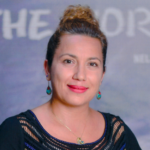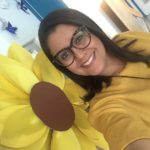How does the Reggio Emilia approach impact student learning ?
How to respect and encourage students´conceptions of literacy through their spontaneous writing in the classroom?
General topic of interest
Providing authentic experiences in defined spaces to support literacy development was our main interest. The purpose of the research was to observe student's growth in oral language, reading,
and writing. We wanted to understand how students used their knowledge and approximations of letters and phonemes to write their names and to demonstrate how thinking becomes visible within a virtual classroom that supports free and spontaneous writing.
Participants
Alice Souza, Clara Peixoto, Lola Gemziczky, Burcu Carneiro, Regina Moura, Gilvania Jucá
Data collecting approach
The curriculum at Concept school is guided by the Base Nacional Curricular Comum, this national document regulates public and private school all over the country. It is the foundation and starting point in which, the institutions can build their curriculum. In regard to literacy in early childhood education, little was said in this document, and as years go by an old theory gains space in the political field. The recent document “Plano Nacional de Avaliação” states a traditional approach towards the teaching of the written system. Our mission is to offer pedagogical strategies that can sustain our beliefs and support the community to nurture the unexpected of children’s learning of the written system. We intend to honor the statement from BNCC that says ”é importante promover experiências nas quais as crianças possam falar e ouvir, potencializando sua participação na cultura oral, pois é na escuta de histórias, na participação em conversas, nas descrições, nas narrativas elaboradas individualmente ou em grupo e nas implicações com as múltiplas linguagens que a criança se constitui ativamente como sujeito singular e pertencente a um grupo social. pg 40
Data collecting example
The data was collected during individual meetings with students through Google Meet, which enabled to collect the qualitative data.
We used pedagogical documentation as the main tool, because of this reason we documented students´ written productions as well as their explanations with photos, videos, and notes. We divided the research protocol into three phases: 1. Collect data/Apply the protocol. Record the session audio or video to document the process.
2. Analyze data/Analisar o nível da criança de acordo com a psicogênese.
3. Literacy reflection/Develop strategies to assist the child (meaning the stage of development she/he is in) in deepening her knowledge in a perspective of social use of the writing system.
Guided questions were
- Can you draw yourself?
- Can you write your name?
- Can you read your name? Use your finger
- How many letters are there in your name?
- Can you tell me the letters of your name?
- Is that your full name? Can you write your full name?
- If the child can write and read, ask to circle the last name.
- Can you think of a word that begins with the first letter of your name?
- Can you write it down? The way you think it is.
- Can you think of a word that rhymes with your name?
- Can you write it down? The way you think it is..
Emerging results
Reflections
The most profound thing we learned during the protocol was that giving the students space to explore their work is critical to recognize their abilities and potentialize their learning. Besides, we noticed that phonemic awareness is an essential aspect of emergent literacy development. By providing a safe, stress-free environment children can explore the writing system and unfold their potentials. We also reflected that child's language expressive skills help children's literacy development. The efforts are recognized as part of their hypotheses and differ in each stage of the psychogenesis,
Next steps
Our next steps are to continue being facilitators of learning and to push for the depth of understanding and inspire children through provocations to develop their literacy skills. We aim to organize materials to inspire storytelling, co-constructing an alphabet to develop phonemic awareness, and building and labeling elaborate structures. We carry on providing the intentional and purposeful ways that children can communicate their thoughts and ideas as oral language is the foundation of literacy development.







